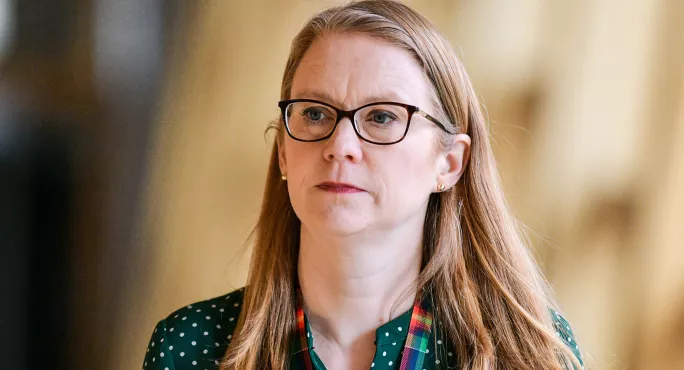Somerville grilled over teacher numbers pledge

Scottish education secretary Shirley-Anne Somerville has been forced to defend her decision to maintain teacher numbers amid claims that the timing of the move - coming as councils prepared to set their annual budgets - has caused “chaos” and is leading to “massive cuts” in other areas.
Labour education spokesperson Michael Marra said that Dundee City Council would set its budget tomorrow, and that one proposal is to cut funding for music initiative Big Noise Douglas, which amounts to £900,000 over the next three financial years.
A petition against the cut - set up by a parent who says the initiative has “allowed children to develop music skills that they may never have had the opportunity to learn” - had gathered over 1,400 signatures at the time of writing. And today University of Dundee academic Professor Divya Jindal-Snape, who was involved in a recent evaluation of the initiative, joined calls for the council to continue the scheme’s funding, saying: “Big Noise does so much more than offer music lessons. Our evaluation found that it increased young people’s confidence, social skills and their engagement with learning.
“It also increases community cohesion, which can be seen in the response to the petition.”
Mr Marra said the fact that councils had been given “no notice” of the government’s plan to maintain teacher and support staff numbers meant they had been left “in chaos”, and “having to make massive cuts”.
- Background: Teacher numbers fall despite Scottish government pledge
- News: Government to enforce minimum learning hours
- Feature: Why getting teacher recruitment right is proving so difficult
In response, Ms Somerville - who was this morning giving evidence to the Scottish Parliament’s Education, Children and Young People Committee on the 2023-24 budget - said action had been taken late in the day because the government only became aware that councils had failed to increase teacher numbers when the teacher census, published in December, “sparked concerns”.
She also said the action was a response to the proposals for savings recently put forward by councils, some of which would have had “grave” consequences for teacher and support staff numbers.
Arguments over protecting teacher numbers
Ms Somerville said that in future councils will have to maintain teacher numbers or suffer financial penalties. However, she said that progress would be monitored throughout the year - probably “on a quarterly basis” - so any issues could be flagged early ahead of the publication of the teacher census.
She also said that councils could ask for “exceptional circumstances” to be taken into account if numbers fell, and that authorities struggling to recruit staff would not be penalised.
However, when it was suggested that councils with falling pupil rolls could end up with “a surplus of teachers” and that the government might look to the “specific circumstances of the area” in those instances, Ms Somerville appeared to dismiss that suggestion.
She said: “I don’t see them as a surplus of teachers. I’d see them as a teaching workforce that can be used by a local authority to assist children in a variety of ways, as the local authority sees fit, particularly to try and improve attainment.”
Liberal Democrat education spokesperson Willie Rennie, meanwhile, asked if there was a danger that by penalising councils for cutting teacher numbers, there could then be a further fall in teacher numbers because councils would have “even less funding” at their disposal.
However, Ms Somerville said: “What we had up to 2018-19 was exactly the system we are now putting back in place, and during that time no council - no council - got to the stage of having a financial penalty. I think that proves the situation worked, and I would anticipate that would be happening again.”
This time around, however, it is not the pupil-teacher ratio that councils are being asked to maintain but the total number of teachers and pupil support assistants.
The Scottish government wrote to local authorities’ body Cosla on 7 February confirming the revised terms of the local government finance settlement.
It set out that teacher numbers and the number of pupil support assistants had to be “at least maintained at their current levels in the year ahead” - with the 2022 census providing the baseline.
The government also said that there was to be no reduction in the number of pupil learning hours delivered by teachers in the school week.
The Scottish government has promised to increase teacher numbers by 3,500 over the course of the current parliament, and support assistants by 500.
You need a Tes subscription to read this article
Subscribe now to read this article and get other subscriber-only content:
- Unlimited access to all Tes magazine content
- Exclusive subscriber-only stories
- Award-winning email newsletters
Already a subscriber? Log in
You need a subscription to read this article
Subscribe now to read this article and get other subscriber-only content, including:
- Unlimited access to all Tes magazine content
- Exclusive subscriber-only stories
- Award-winning email newsletters



